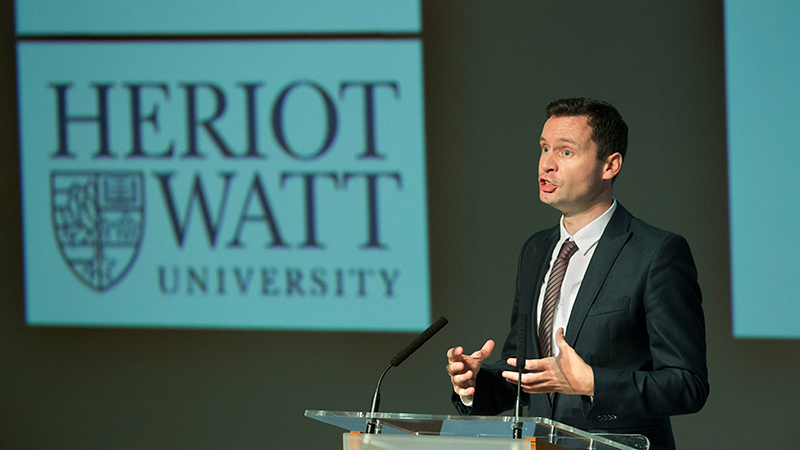Published:

Over 200 people attended a special event exploring research about what might keep us sharp as we age.
Brain Health Day was hosted by The Ageing Lab from the University's Department of Psychology. The event celebrated the end of a 3-year study led by the team looking at how taking up new activities might have benefits for thinking skills.
The audience were given a very first look at some of those results, but those were kept to the end of a packed afternoon.
Earlier in the programme, guests heard about other work led by The Ageing Lab, including a UK-wide survey of over 3000 people exploring what people know about the factors related to brain health, and their partnership with Cycling Without Age Scotland.
The Ageing Lab's talks were complemented by colleagues from Psychology's Memory Lab who shared their research about how rest might help consolidate memory, even in people with specific memory problems.
Research findings from collaborators were also shared on the day, including an ongoing study where older people become volunteers within school setting led by Strathclyde University, and a summary of a study that's been exploring brain health for 20 years at the University of Edinburgh.
Guests received a warm welcome from the Principal who highlighted the benefits of learning and engagement at all stages of life, a key theme throughout the day.
As well sharing the latest research, partners from Age Scotland and Age UK highlighted how they work in collaboration with academics to develop and communicate messages to the public in order to support older people in communities across the country. Age Scotland hosted a very busy stand during the break, as did the Adult Education Programme from the City of Edinburgh Council where many of the activities in The Ageing Lab's most recent study were based.
Professor Alan Gow, who leads The Ageing Lab, said "Brain Health Day was the culmination of support from a range of colleagues and partners, and most crucially, our study volunteers who so enthusiastically and willingly give of their time to help us explore how we might stay sharp. The event was our small way of thanking them for their contribution, as well as giving them a first sneak preview of results many months before anyone else in the world will see them".
Many of those attending were volunteers who had taken part in The Ageing Lab's research. As a special thank you for their contribution they all received alumni badges to mark their 'graduation' from the study.
Brain Health Day appears to have been a positive experience for many of those attending, with comments including "The speakers were fantastic and made it informative and entertaining", "The whole event, with all its many elements, hung together seamlessly to make a very enjoyable experience. It was light-hearted, amusing and informative and highly accomplished", as well as "The feeling of being back at university and having my mind stimulated!".
Professor Gow added "We were pleased to welcome so many people to Heriot-Watt, especially being able to communicate what we and others are doing to better understand brain health with those contributing to that work".
The research team are now into the main analysis phase of the project and hope to start reporting the fuller findings from early next year. Updates on those results, and other research from the team, can be found at healthyageing.hw.ac.uk or on Twitter @TheAgeingLab.